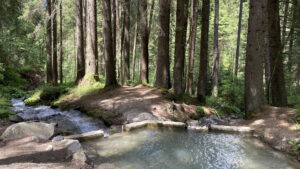Abstract/Description
Ski season is becoming shorter due to the lack of enough snow pack; because of the poor quality of ice, climbers rarely can rely on any ice to fix their ice screws; rock fall is disappearing traditional climbing routes, and permafrost is retreating mountain glaciers. All these environmental changes are reshaping the physical landscape of mountains, and the spirit of mountain climbing as a sport, adventure, and recreation is changing. While scientific studies have documented these hazards, mountaineer’s narratives interwoven with such environmental change remain unexplored. By employing visual and archival methods, we scrutinized the 20 volumes of the Canadian Alpine Journal (1922-1931 and 2013-2022), categorizing the data into early and modern narratives. We hypothesized that early climbers would concentrate solely on heroism, first-ascent, and adventure themes, while more recent mountaineers, would heavily bring environmental change awareness. In contrast to our predictions, however, many old twentieth-century records reported many environmental hazards in their narratives, even without explicit modern environmental terms like permafrost and/or climate change. Our findings not only are a rich archival investigation, but also could be an important awareness for global mountain forums, stakeholders, guides, and scientists, sharing stories from the past, analyzing them with the current state, and planning adaptation strategies for the future of mountaineering.


